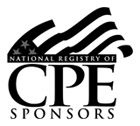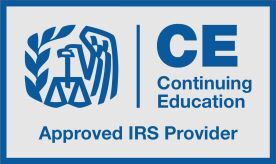

View Details/Register
View Details/Register
View Details/Register
View Details/Register
View Details/Register
View Details/Register
View Details/Register
View Details/Register
View Details/Register
View Details/Register



Architectural and engineering (A/E) firms can benefit from several specialty tax incentives. Engineers and architects are constantly designing, evaluating, and refining. This evolving cycle of innovation is precisely what the R&D Credit is intended to reward. Many A/E firms aren’t aware that their day-to-day activities may qualify for this lucrative, dollar-for-dollar credit. Plus, the R&D Tax Credit grows as an A/E firm does: there is a modified version for start-up firms and a standard version for more established teams. Additionally, architects and engineers who function as design professionals for government projects or tax-exempt entities may be allocated the 179D Energy Efficiency Deduction.
This Deduction can serve as a tremendous source of revenue for a designer. This session will help you recognize opportunities for your clients in the architecture and engineering spaces and will help you guide them as they navigate the claiming process. Various real-life examples will be reviewed to illustrate the scope of applications and potential benefits.
Learning Objectives:
- Summarize how Harper v. Commissioner has allowed A/E firms to confidently claim the R&D Tax Credit
- List a selection of architectural and engineering-specific Qualified Research Activities and Qualified Research Expenses
- Recognize the importance of documentation in successfully claiming the R&D Tax Credit for A/E firms
- Determine how to counsel your clients regarding Section 174 Amortization
- Describe the relationship between facility size and potential benefit when claiming the 179D Deduction
- Identify the unique steps that must be taken for a designer to be allocated the 179D Deduction

Jacob Wood, JD
Capstan Tax Strategies
Regional Director of Business Development
[email protected]
(215) 885-7510
Jacob Wood likes to get into the trenches with his clients.
As Regional Director of Business Development, Jacob works closely with his clients – planning with them, building with them, and celebrating with them. Jacob prides himself on creating long-term relationships, not short-term sales, and his analytical skills and financial expertise allow him to function strategically as a trusted advisor.
In the last decade, Jacob has personally performed or overseen over 2,000 R&D Tax Credit studies, identifying and substantiating over $800 million in federal and state tax credits. Additionally, he specialized in creating excellent experiences for his clients and their friends, engaging hundreds of clients by direct referral. The majority of Jacob’s clients have also gone on to become multi-year partners.
Jacob is a Subject Matter Expert in R&D Tax Credit Law, Canadian SR&ED Credits, and Cost Segregation. He is also a SME in the Architecture, Engineering, Construction, Manufacturing, Software, and Life Sciences industries, though he confesses to a special interest in robotics and automation.
A self-described “lifelong student,” Jacob is continually sharpening his technical skills. He freely admits to loving math, reading The Economist, and considering tax law a “fun hobby.” Jacob is first and foremost a people-person, and using his knowledge to help clients in a positive, productive way is what he finds truly gratifying.
A member of the Texas Bar Association, Jacob holds a Juris Doctor degree from the Indiana University Maurer School of Law and a Bachelor of Arts degree from Duke University.
Happily married to his college sweetheart, Jacob is a busy father of four. In his scant free time, Jacob enjoys running, cooking, and introducing his kids to classic 1980s movies.
- To receive CPE credit, you must register for the webinar before it starts.
- CPE is available to all eligible participants within 24 hours of each webinar.
- To receive CPE for multiple attendees, at least one person must sign up for the webinar. The post-webinar email contains a link to instructions for the proctor letter. Alternatively, you may log in to your account following the webinar and click on the MY ACCOUNT button to find a link to instructions. For paid courses, payment needs to be made for each attendee before credit will be issued.

NASBA Approved
CPAacademy.org (Sponsor Id#: 111889) is registered with the National Association of State Boards of Accountancy (NASBA) as a sponsor of continuing professional education on the National Registry of CPE Sponsors. State boards of accountancy have final authority on the acceptance of individual courses for CPE credit. Complaints regarding registered sponsors may be submitted to the National Registry of CPE Sponsors through its website: www.nasbaregistry.org.
CPAacademy.org 1685 S. Colorado Blvd, Suite #205, Denver, CO 80222

EA Approved
CPAacademy.org (Sponsor Id#: HURS9) has entered into an agreement with the Internal Revenue Service, to meet the requirements of 31 Code of Federal Regulations, section 10.6(g), covering maintenance of attendance records, retention of program outlines, qualifications of instructors, and length of class hours. This agreement does not constitute an endorsement by the IRS as to the quality of the program or its contribution to the professional competence of the enrolled individual. Credit earned by attendees with a PTIN will be reported directly to the IRS as required of all providers. To ensure your CPE hours are reported, update your profile in My Account to include your PTIN number. Please note: IRS CE is only mandatory for EAs and ERPAs. For all other tax return preparers, CE is voluntary.
CPAacademy.org 1685 S. Colorado Blvd, Suite #205, Denver, CO 80222




